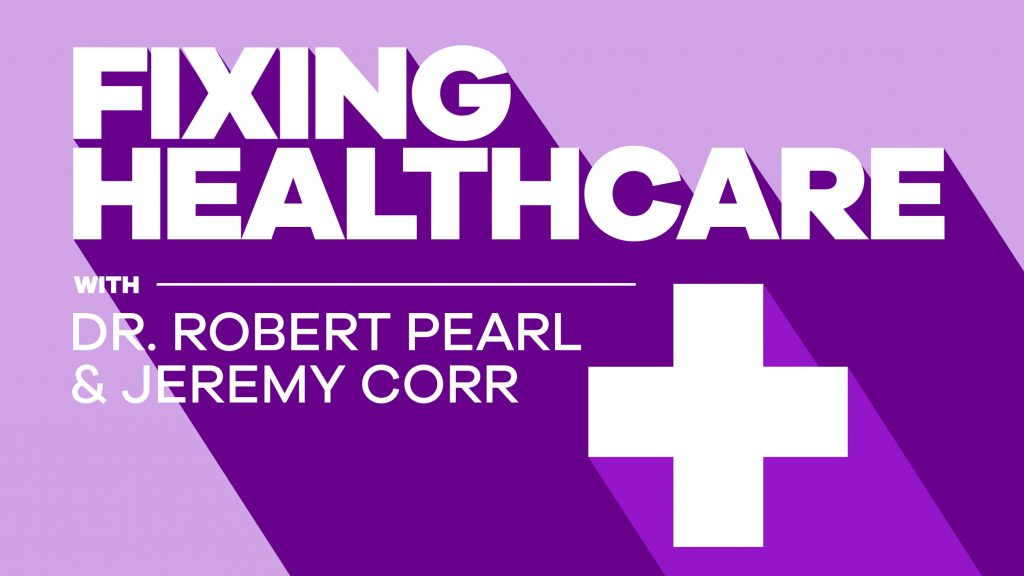At the end of Episode 11, Fixing Healthcare co-hosts Dr. Robert Pearl and Jeremy Corr turned to listeners for ideas and suggestions.
This regular feature of Season 2 comes by way of the Fixing Healthcare Survey. Please continue to give us your input. Robert and Jeremy will share the best ideas on a future episode.
This month, Heidi Creighton, Kristin Steurel, MD, and Dr. Danielle Armas told us that expanding mental health services is a critical step toward improving the nation’s health overall.
Transcript from Fixing Healthcare (Episode 11)
JEREMY: Now let’s turn to some listener feedback. We asked for your ideas on how to fix American healthcare and we’ve received hundreds of responses on RobertPearlMD.com.
Today we’ll hear from listeners who wrote in about opportunities to improve mental health services.
Dr. Danielle Armas writes that the future of American healthcare is dependent on access to psychiatric care, counseling services and primary care. She calls for the de-stigmatization of mental health conditions and mental healthcare.
Kristin Steurel, MD, told us that our nation should stop waiting until people have true crises of mental health, and that we should start addressing basic anxiety, depression and adjustment reactions in youth and young adults. She says we must teach resilience, and use validated non-prescription approaches to mental health early and often.
Finally, Heidi Creighton recommends integrating mental healthcare into primary healthcare and pediatrics—she says both forms of care offer a cost-efficient and preventative approach to healthcare overall.
ROBERT: I concur that we need to do a better job of integrating mental health services with the rest of medical practice. More and more, researchers are beginning to recognize the impact of mental health on clinical outcomes, chronic disease and overall health. When we fail to address the patient’s psychological needs, we are at risk of creating many adverse effects, including poorer quality of care and higher costs. Some of the most effective models I’ve seen are programs that embed mental health professionals into primary care modules, just as Heidi suggested.
JEREMY: Thanks to Danielle, Kristin, Heidi and everyone who has participated so far in the “Survey to Fix American Healthcare.” You can find all the featured comments on our Fixing Healthcare website. We also invite you to leave your own thoughts and recommendations at RobertPearlMD.com. We’ll continue to share ideas from our listeners in the future.
READ: Full transcript of our discussion with Lindsey Fitzharris
* * *
Fixing Healthcare is a co-production of Dr. Robert Pearl and Jeremy Corr. Subscribe to the show via Apple Podcasts or wherever you find podcasts. Join the conversation or suggest a guest by following the show on Twitter and LinkedIn.

